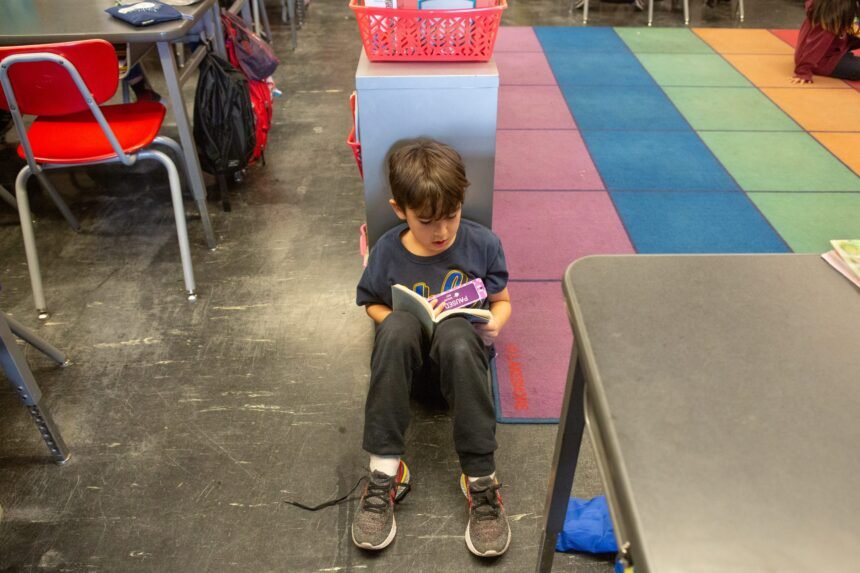Young men in America today are feeling lonely and socially isolated. They are not going to college, entering the workplace or going on dates as often as young men did in prior generations.
In my years teaching literacy, I’ve watched the lines on two graphs move in opposite directions: male loneliness climbs as male reading and writing scores drop. Are these trends correlated, and if so, can reading help address loneliness?
Diminished friendships, reduced economic opportunities and the substitution of online interactions for face-to-face connections seem to particularly impact young men.
Some 25 percent of U.S. men aged 15-34 felt lonely “a lot of the previous day,” compared to 18 percent of women in the same age group, a recent Gallup survey found. The same survey found that U.S. men are lonelier than their international counterparts.
Overlaying this epidemic of loneliness is a literacy crisis that continues to deepen, evidenced by sharp declines in the 2024 NAEP results. Only 35 percent of high school seniors now read at or above proficiency, with reading scores 10 points lower than they were in 1992. The numbers reflect not just skill deficits but broader cultural shifts.
Related: A lot goes on in classrooms from kindergarten to high school. Keep up with our free weekly newsletter on K-12 education.
In the UK, a country with similar male loneliness rates, just 41 percent of parents with children under five read frequently to them, down from 64 percent in 2012, a 2024 Harper Collins UK survey found. The survey revealed even sharper reading drops for boys: Less than one-third from birth through the age of 2 were read to daily, compared to 44 percent of girls. Meanwhile, the number of American adolescent boys who read for fun has dropped to a historic low.
Literacy instruction has not kept up with changes in the literacy landscape, and is failing to help students connect, think carefully and resist manipulation. Traditional reading and argument, for instance, have been dramatically replaced by memes and misinformation that spreads faster than anyone can correct it. Public discourse has become inflammatory rather than inquisitive, with half-quotes from podcasters and political pundits lobbed like verbal grenades.
These two trends have serious social costs, and may reinforce each other. Data show, for example, that as young men fall behind in education, they become increasingly attracted to conspiratorial thinking and political radicalization.
Combining a lack of critical reading skills and habits with an unsatisfied need to bond, to connect and to belong results in an emotional feedback loop, driving young men into spaces designed to persuade or recruit rather than inform.
Related: Behind the latest dismal NAEP scores
Thus, while it is tempting to treat literacy and male loneliness as separate issues, research demonstrating the social benefits of reading to children offers interesting connective tissue. Neuroscience research confirms, for example, that reading aloud activates brain regions associated with both language processing and social bonding. Respondents to an international survey described reading as a method for maintaining social connection.
Young boys need these benefits at this very moment.
That is why I strongly believe that one simple way we can and should address these trends is to inspire interest in reading among boys.
Parents, teachers, guardians, siblings and anyone who takes care of children should read to and with them. Longstanding cultural norms reward girls for reading but not boys. Literacy needs to be framed not as a gendered expectation or duty but as a relational ritual.
Schools need to do more than prepare students for literacy tests; they should create formal spaces to enjoy reading, including book clubs, intergenerational reading groups and classes which show that reading is not a solitary grind but a communal act. The solution I propose is fairly cheap, carries no risk and is backed by evidence: Treat reading as the most important social experience children can have.
JT Torres is director of the Harte Center for Teaching and Learning at Washington and Lee University.
Contact the opinion editor at opinion@hechingerreport.org.
This story about male reading and loneliness was produced by The Hechinger Report, a nonprofit, independent news organization focused on inequality and innovation in education. Sign up for Hechinger’s weekly newsletter.





